Odeth Richardson (pictured above) is a powerhouse. Having started out in the NHS as a healthcare assistant 28 years ago, she is now the head of occupational therapy (OT) at Newcastle Hospitals. She is also a cultural ambassador at the hospitals, and chairs their racial equality staff network.
Alongside this role, Odeth is also the chair of council for the Royal College of Occupational Therapists (RCOT) and a trustee for the Angelou Centre in Newcastle, which supports Black, minoritised and migrant survivors of domestic and sexual abuse.
In summary, she has dedicated her life to advocating for Black women, changing systems in order for them to thrive.
“My mother always said to me: ‘To whom much is given, much is expected.’ When I first came to Newcastle, I was the only Black person in the team. It was the first time I’d ever experienced racism, having come from Brent, the most multicultural borough in London. Newcastle was not very diverse at the time and, because I was different, some staff had a hard time accepting me.”
“Back then, I didn’t know about the union, and there were no staff networks. Because I went through such a tough time, I wanted to make sure those coming behind me had a better experience.”
Making sure Black voices are heard
During the COVID-19 pandemic, when she saw that disproportionate numbers of Black healthcare workers were dying of the virus, Odeth and her team sprang into action.
“We worked with HR to ensure the risk assessments were adequate. We made sure that everyone had the correct PPE, we worked with our medical director to remove staff from the frontline when things got hot. That’s something we’re really proud of and, as an organisation, we never lost a member of staff from the BME community.”
Alongside advocating for workers on the ground, Odeth fights to make sure that Black voices are heard at the highest level too. “When George Floyd died, a group of Black occupational therapists lobbied the Royal College of OTs to put out a statement. It took a while, but they eventually got on board, and then they suggested having a big BME conversation. They invited lots of BME members to engage. However, the organisation came across as defensive and didn’t seem to understand why things needed to change.”
She continues: “When the position of chair of council came up, I decided to apply. I felt I could no longer advocate for change and not play my part. Some of my colleagues felt I couldn’t undertake this role as I have never sat on any RCOT committees. Occupational therapy is a predominantly white, middle-class profession and has always been governed as such.
“But I knew I had the experience, and I had experience as the chair of the Angelou Centre, alongside other trustee roles, and I understood what good governance looked like. I put myself forward and members voted me in.”
Equality, diversity, inclusion
As chair of council for RCOT, Odeth has spearheaded the organisation’s equality, diversity and inclusion (EDI) work.
“We are currently working on an EDI strategy. We’re engaging with members to make sure their voices are heard. When I first started in occupational therapy in 2000, Black voices and other voices from other protected characteristics weren’t being heard. I want to make sure they’re heard now.
“So many issues within the NHS are in the structures, which are rooted in colonialism. These structures don’t work for people of colour. There’s still a lot of nepotism and jobs are not often acquired on merit.
“Alongside this, there’s a lot of colourism. Asian colleagues, because they’re lighter-toned, will be promoted above Black workers. Black women are always at the bottom of the chain. The darker your skin tone, the lower down the chain you are. We have just as much to offer, but we’re not given the opportunity to shine.
“I’m hopeful for the day we don’t have Black History Month, when Black people will be treated the same as our white counterparts. Until then, I will continue to advocate for those who are less heard.”
Recent NHS workforce data shows that Black workers remain underrepresented in senior positions, while 29% of Black workers experience bullying, harassment and abuse from patients. In spite of it all, Odeth is undeterred. She says that celebrating the small wins is essential to maintaining motivation.
“You have to celebrate those small wins. If you don’t celebrate, you don’t get the energy to keep going. Sometimes you can get emotionally and physically drained when you see the constant injustices. You need to know when to take a break and take stock, replenish and come back stronger and ready to go again. After all, you can’t pour from an empty cup.”
Problem solving
Like Odeth, Carole Adebayo (pictured below) is a problem solver. A business intelligence manager for Midlands & Lancashire Commissioning Support Unit (CSU), she has worked in the NHS since 2003 and been a UNISON steward since 2012. She is also a health and safety rep and Black members’ officer for her branch, Mersey Community and Hospitals.
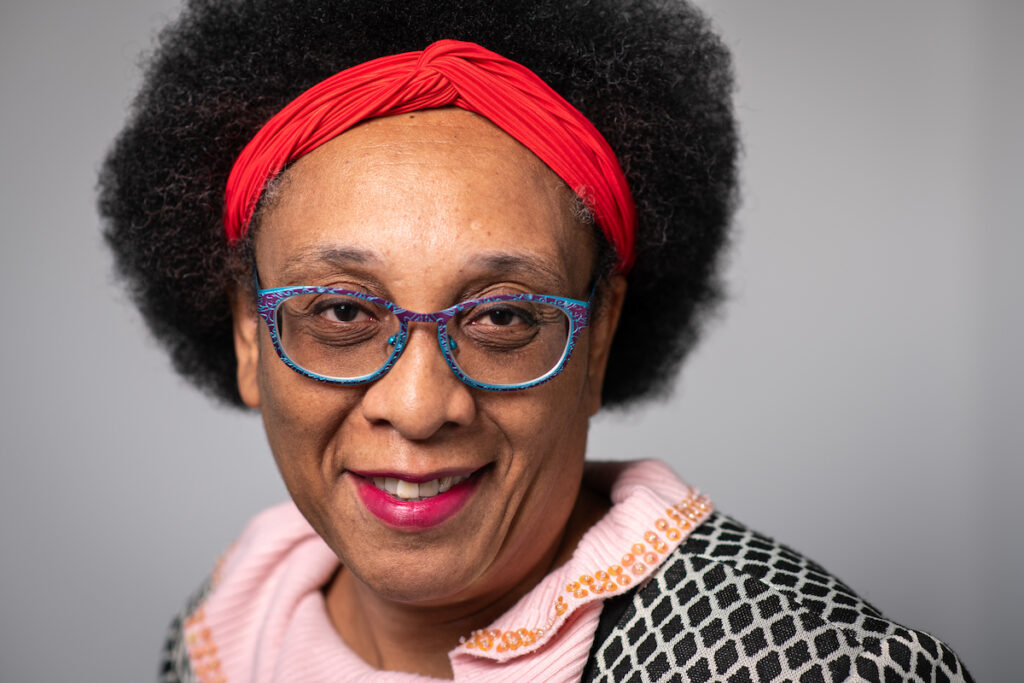
Throughout her time as a UNISON rep, Carole has supported staff through the major NHS transition under the 2012 Health and Social Care Act and three different organisational mergers, involving moves and relocations. And like Odeth, she ensured that the safety of Black staff was a priority throughout the COVID-19 pandemic.
Carole designed a list of questions for CCGs to answer, to ensure they were keeping staff safe, covering things like risk assessments, PPE, mental health assessments, hygiene measures, vaccinations, ventilation and return to work plans. Her comprehensive list was so well received by HR that it formed the organisation’s COVID-19 assurance document. On behalf of the whole organisation, Carole had spotted a problem and created the solution that would take care of over 1,500 staff.
This isn’t the only time that Carole’s quiet brilliance had single-handedly designed an organisational policy to support workers’ wellbeing.
“We once had a disabled member of staff who contacted me because her dog was in training to be a support dog. We didn’t have any policy or guidance with regard to guide dogs. As part of my role as health and safety rep, I wrote up a guidance document, risk assessment form and agreement. The health and safety group is going to put it onto our staff portal.”
Health and safety
The role of health and safety rep is uniquely influential, Carole says. “In health and safety, you have more authority because you’re familiar with laws and regulations, and employers don’t have much choice because it’s the law. I find that it’s a really useful position from which to drive forward change.
“For example, we’ve just published a trade union wellbeing survey. At first, I framed it around the Year of the Black worker. However, the employer was resistant. When we proposed it as a health and safety measure, they couldn’t say no. We wanted the focus to be on Black workers and women – framing it as health and safety was the best way we could do that.”
In her role as Black members’ officer, Carole has supported workers with bullying claims. “I really enjoy helping people solve their problems. The sooner that we can help them resolve something, the better. I love it when I help someone and they come back years later to thank me for the difference that it made. At the end of the day, nobody should come into work and feel upset, or be crying.”
Having witnessed several organisational changes in the past 20 years, Carole believes that improvements in conditions for Black workers are dependent on how senior you are. “For some people, things have improved, for some, they haven’t. That is why equality impact assessments (EIA) are important. In addition, I research and ask further questions of the EIA that delve deeper, to make sure our members are well supported and help to improve things.
“Overall, I’m proud of what I’ve been able to achieve as chair of the staff side. And I think a lot of that has been because we’ve got a solution-oriented, harmonious relationship with the employer. We’re not adversarial – we really do try to resolve problems together.”

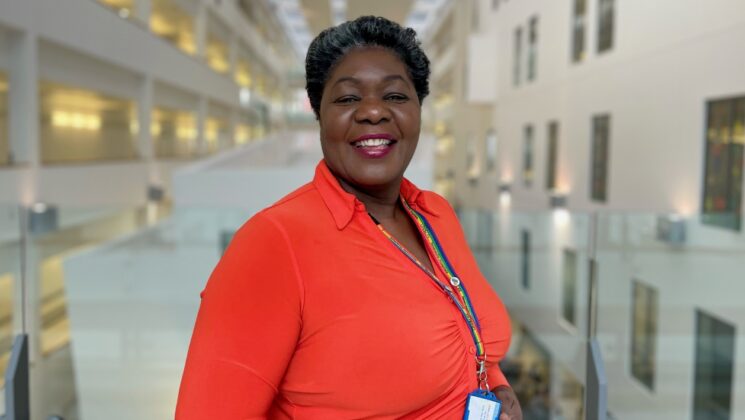


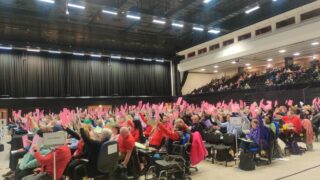


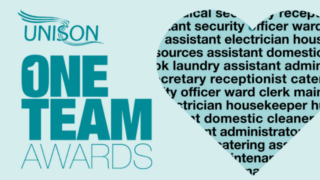
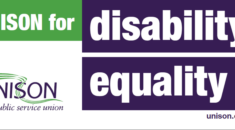

I absolutely agree with Odeth’s comment regarding Black History Month. We should all be treated as equals and with the same respect in this day and age.
Tremendous work Odeth, congratulations.
It is really encouraging to see Black women rise up the ranks and make significant changes in the workplace for the good. Well done Odeth and Carole
Love too see my sister’s doing so well for them selfs it makes me work harder and encourages me to break more boundaries. Well done
A Big congratulation to Odeth and Carol for the work they are doing.
It takes a lot of courage, boldness , self belief ,determination , love sacrifices and time to do what you are both doing.
May God give you the strength to keep going.
I salute you Odeth and Carole for paving the way and your support for Black women. Continue to do a wonderful job in your communities. Well done and Thank you.
Great to hear of the achievements of Black women.
It was truly inspiring to read about the experiences of Odeth and Carole. Despite centuries of oppression and deep-rooted racism and sexism these wonderful warriors continue to rise up. It is a rare thing for me to absolutely agree with everything they said but I absolutely did! I salute you both!
It is really encouraging to see that black voices can be heard. Thank you all for all you do
Well done to Odeth and Carole. You are doing a brilliant job for all of us. God continue to give you the strength to carry on the fight for us all. My sisters I salute you.
I am a Black Sister for for 23 years. I chose to remain as one because I wanted to be on the floor to be an advocate for my patient and staff. The journey has been terrible a few days ago I was told by the matron that my attitude stink because I told her she treated me different to other staff. She went as far as to tell me that that my colleague are animal during a conversation that we had and I told her if they are so am I . I am very tired of writing statement and fighting for my right as a Black intelligent Sister. I do not get the support from other black staff because they are scared of reprisals. OH MY GOOD LORD it is a lot.
Thanks you Odeth and Carole for the hard work that you both are doing for Black Staff
I am afraid that I am not that optimistic in rising up where I am. Until the culture of “ear marking” posts for staff with no qualifications for the post is irradiated. Then people who are qualified will be permanently overlooked. That includes white counters and as for the black counterparts, they do not stand a chance.
I moved from Birmingham ( which is very ethically diverse ) some years ago. Most of my black nursing staff have made good career progression. Even the ones who qualified long after I Did.
I have been in the East of England and worked in, all the “ well known” hospitals that will pop into your head. Everybody wants me on their team, no one wants to support me going forward. It is strange, we may be in modern day, but it feels like we are still in the past.
Congratulation to you both. You are doing a fantastic job.
Thank you for sharing Odeth & Carole and may you continue to strive, change and succeed in your endeavours- which are many. To my fellow members, change is slow – as we are still trying to be seen by many as human beings too, BUT remember to wear your crown daily, cause mama nuh raise no fool and we are truly blessed ❤️
It’s good to see someone standing up for those less fortunate everyone should be equal no place for bullying in the workplace at all everyone should be encouraged by this and hopefully one day there won’t be bad bosses
I experience Racism, Descrimination and constrictive conspiracy. No one to give me support because am black. I am happy to know that Blacks has support.
Congratulations to both Odeth and Carole, you have done an amazing job.
I can resurrect with a few comments here especially Cordelia however, soldier on. In my place of work I encourage others to do the same even when faced with the underhanded passive oppression from the higher management but still the fight goes on for better for us.
As a black sister just starting up in the ladder, these sisters moves are quite encouraging. They are such an inspiration.
I am proud to see and hear the achievement of my black sisters. Keep it going.